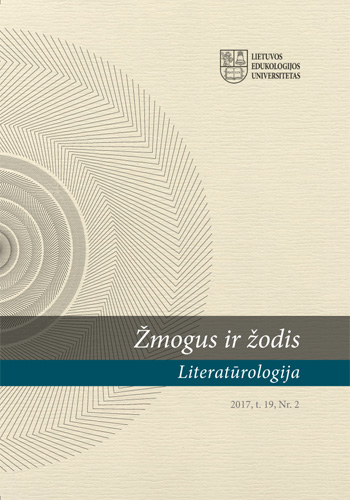Žmogų išbandantis blogis Grigorijaus Kanovičiaus romane „Šėtono apžavai“
Evil That Puts to a Test a Human Being in “Šėtono apžavai” by Grigorijus Kanovičius
Author(s): Rima KasperionytėSubject(s): Christian Theology and Religion, Ethics / Practical Philosophy, Comparative Studies of Religion, History of Judaism, Lithuanian Literature, Theory of Literature
Published by: Vytauto Didžiojo Universitetas
Keywords: Grigorijus Kanovičius; Lithuanian Jews; Holocaust; the Old Testament; ethical philosophy;
Summary/Abstract: The article discusses the novel Šėtono apžavai (Satan’s Spell) (published in Lithuanian in 2002 and in Russian in 2002 and 2007) by Grigorijus Kanovičius, the laureate of the Lithuanian National Prize, depicting the life of the Jews in a fictitious Lithuanian town of Miškiniai during the Soviet and Nazi occupations in 1939-1941. The novel is important because of the depiction of the Holocaust specific to Lithuania. It reveals the little-known biblical subculture of Jewish culture in Lithuania. The problem of the Holocaust is discussed not only in the context of concrete historical time but also of the universal human experience, raising the sensitive issue of the relationship between evil and God and discussing the nature of evil and the possibilities of resisting it from different national, religious, and ideological perspectives. In the article, Kanovičius’s novel is analyzed by linking it with the spiritual tradition of the Jews and Christians (Norman Solomon and Mindaugas Pikūnas), the idea of God who sows evil found in the Books of Esther, Job, Zechariah and Amos, its interpretation in works by Emmanuel Levin and Antanas Maceina. It also examines some more general political and moral aspects of the Holocaust (Hannah Arendt and Robert van Voren), as well as Litvak lifestyle and religious customs.
Journal: Žmogus ir žodis
- Issue Year: 19/2017
- Issue No: 2
- Page Range: 51-64
- Page Count: 14
- Language: Lithuanian

